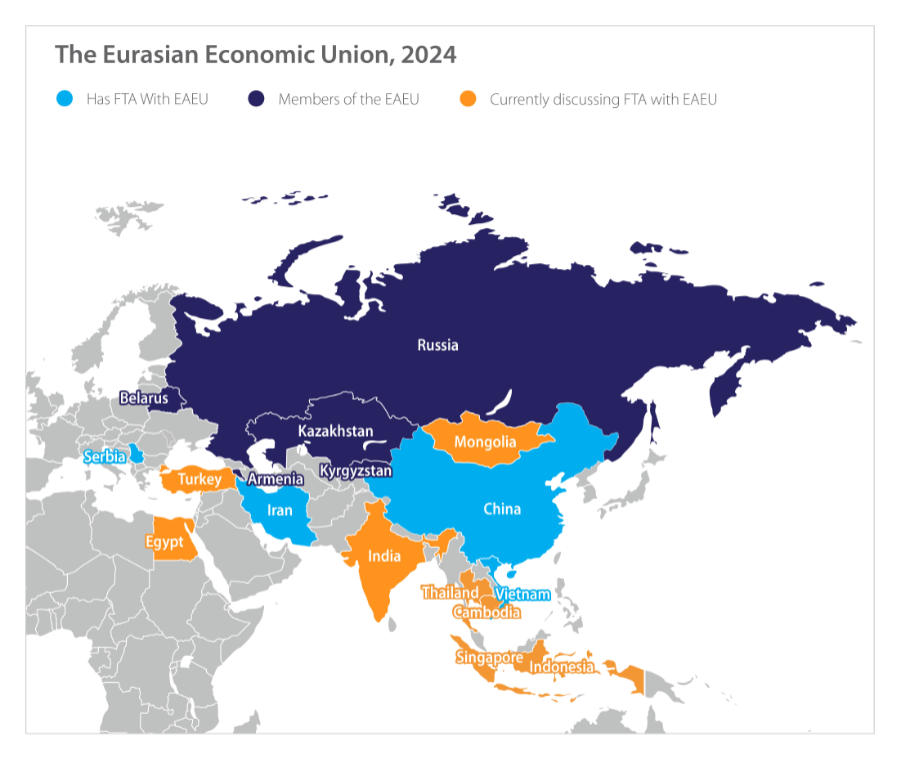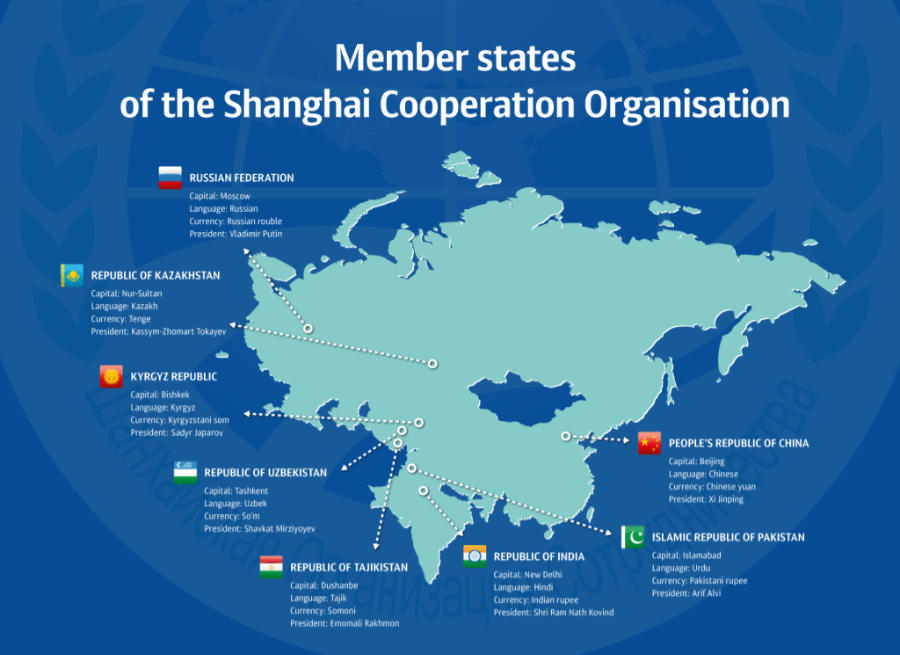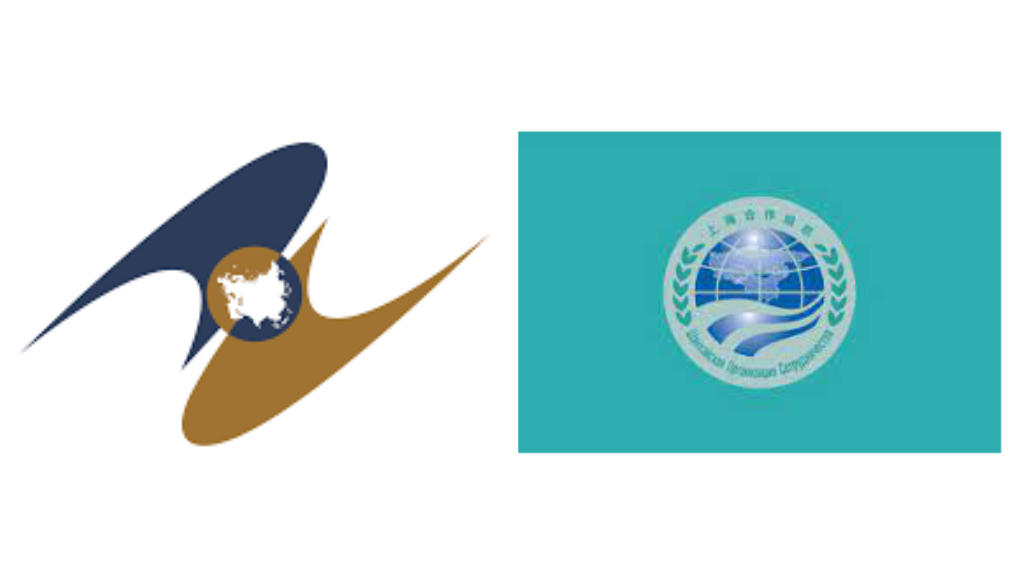The Eurasian Economic Union (EAEU) considers broader cooperation with the Shanghai Cooperation Organization (SCO) as a crucial avenue of its activities, Eurasian Economic Commission Board Chairman Bakytzhan Sagintayev has said, speaking at a CIS international economic forum in Moscow.
“Broader cooperation with the SCO is a key avenue for us. The EAEU and the SCO have set up an institutional basis for interaction, signed a memorandum, and are finalizing a plan of events for 2024-2025 towards implementing the memorandum, and its regulating bodies have arranged a systemic dialogue.”
The EAEU includes Russia along with Armenia, Belarus, Kazakhstan, and Kyrgyzstan. It is a free trade bloc and fills the geographic space between Eastern Europe and Western China. It also has trade agreements with China, Iran, Serbia, and Vietnam with several others pending, including with India and several ASEAN countries.

The SCO includes eight countries as full members: India, Kazakhstan, China, Kyrgyzstan, Russia, Pakistan, Tajikistan and Uzbekistan; four countries — Afghanistan, Belarus, Iran and Mongolia — with observer status with the SCO, and six countries — Azerbaijan, Armenia, Cambodia, Nepal, Turkey and Sri Lanka — with dialogue partner status. The SCO remit differs from the EAEU in that in addition to trade, its mandate also includes security and Eurasian issues such as climate change, infrastructure, scientific and cultural exchanges.

We explained both the EAEU and SCO, as well as commented on their joint relations in Chapter 12 of our “Russia’s Pivot to Asia 2024” PDF, which can be downloaded on a complimentary basis here.
The EAEU is interacting with SCO countries not so much in a dialogue format as primarily in the form of trade agreements, Sagintayev said. “For instance, the EAEU and its member states have concluded a trade and economic cooperation agreement with China. A free trade agreement has been signed with Iran.” Sagintayev said.
The EAEU is consistently building infrastructure for a dialogue with key players in the Greater Eurasian area, he added. “The development of a systemic dialogue with the SCO, ASEAN, BRICS countries, and other countries and associations concerned in the context of greater Eurasian partnership is among the priorities of the union’s international affairs as stipulated in its principal strategic high-level documents.” Discussions between the EAEU and SCO members appear in part to be leading to the eventual creation of a Free Trade bloc including members of both, although it may be some time before it manifests itself. However the countries involved are increasingly wary of a Western exclusive approach when it comes to trade relations and the threats of sanctions. An EAEU/SCO bloc would likely reject such an approach amongst its own members.

 Русский
Русский












